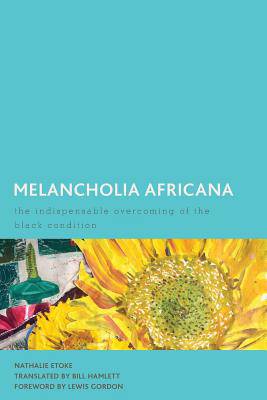
- Afhalen na 1 uur in een winkel met voorraad
- Gratis thuislevering in België vanaf € 30
- Ruim aanbod met 7 miljoen producten
- Afhalen na 1 uur in een winkel met voorraad
- Gratis thuislevering in België vanaf € 30
- Ruim aanbod met 7 miljoen producten
Zoeken
€ 57,95
+ 115 punten
Uitvoering
Omschrijving
Melancholia Africana argues that in the African and Afro-diasporic context, melancholy is rooted in collective experiences such as slavery, colonization, and the post-colony. From these experiences a theme of loss resonates--loss of land, of freedom, of language, of culture, of self, and of ideals born from independence. Nathalie Etoke demonstrates that, beyond territorial expropriation and the pain inflicted upon the body and the soul, the violence that seals the encounter with the 'other' annihilates an age-old cycle of life. In the wake of this annihilation, continental and diasporic Africans strive to reconcile that which has been destroyed with what has been newly introduced. Their survival depends on their capacity to negotiate the inherent tension of their historical becoming. The book develops a transdisciplinary method encompassing historicism, critical theory, Africana existential thought, and poetics.
Specificaties
Betrokkenen
- Auteur(s):
- Vertaler(s):
- Uitgeverij:
Inhoud
- Aantal bladzijden:
- 112
- Taal:
- Engels
- Reeks:
Eigenschappen
- Productcode (EAN):
- 9781786613011
- Verschijningsdatum:
- 18/06/2019
- Uitvoering:
- Paperback
- Formaat:
- Trade paperback (VS)
- Afmetingen:
- 152 mm x 229 mm
- Gewicht:
- 176 g

Alleen bij Standaard Boekhandel
+ 115 punten op je klantenkaart van Standaard Boekhandel
Beoordelingen
We publiceren alleen reviews die voldoen aan de voorwaarden voor reviews. Bekijk onze voorwaarden voor reviews.











